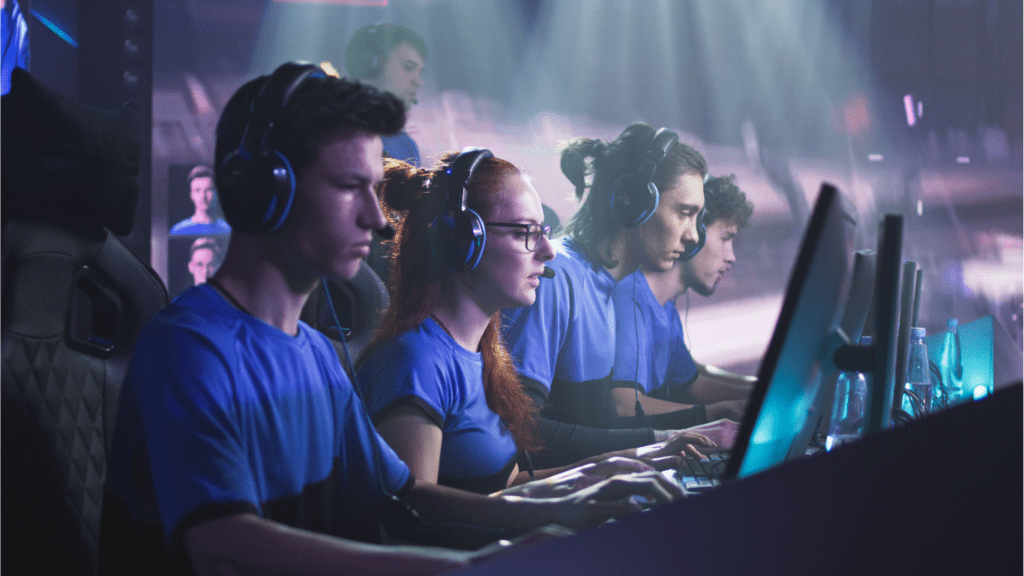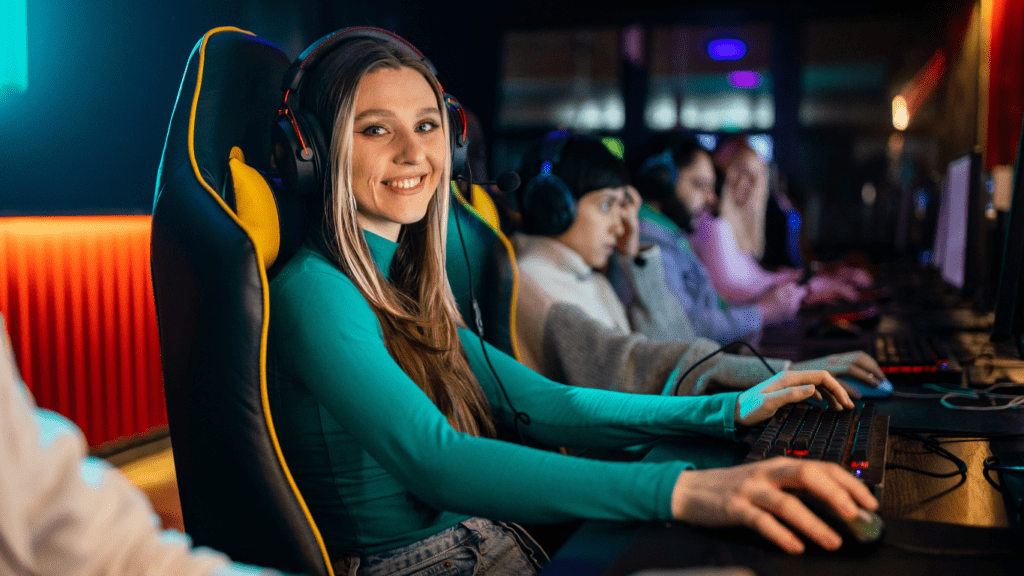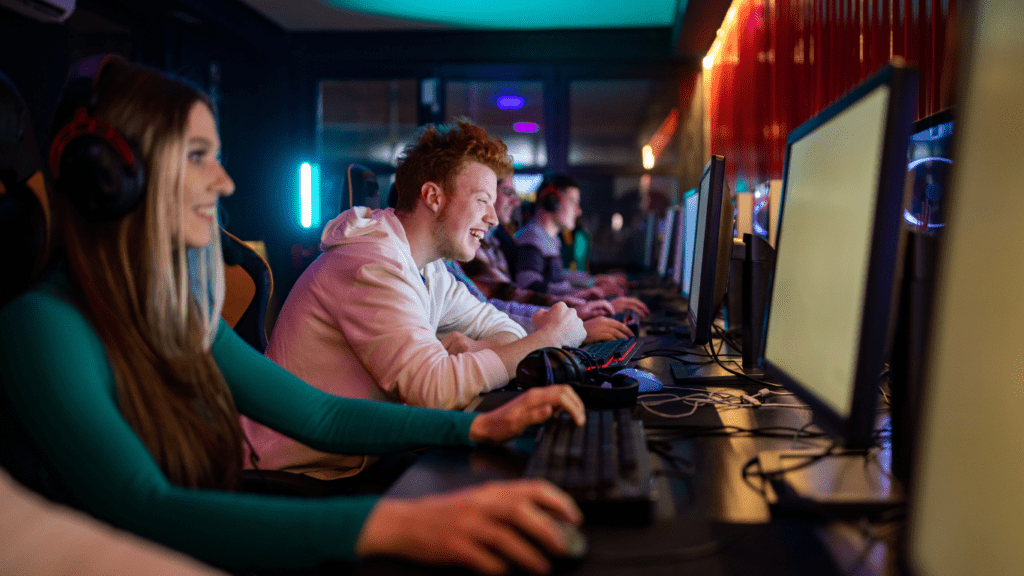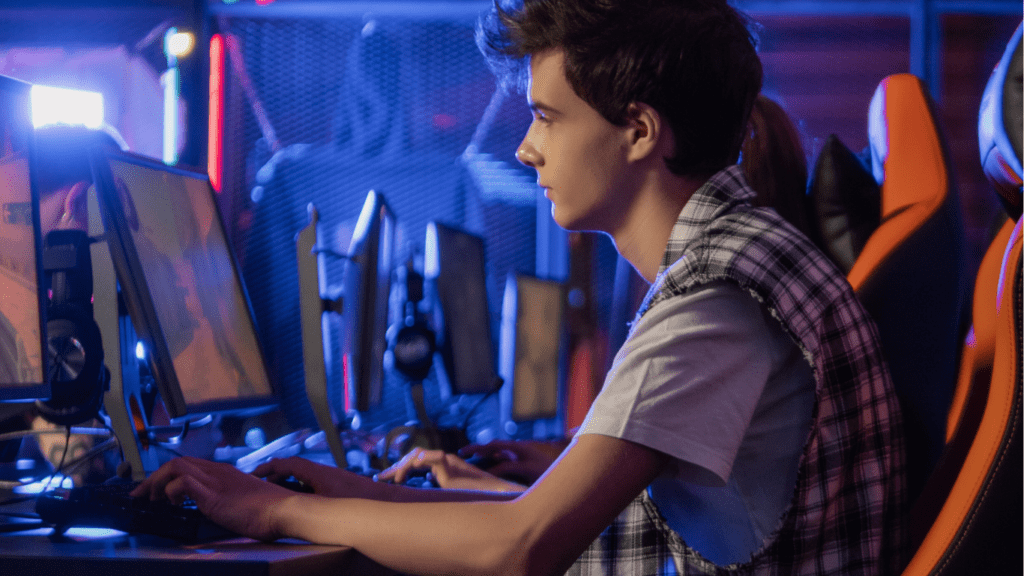Esports has exploded into a global phenomenon, turning passionate gamers into household names. What fascinates me most is how these players transition from unknown rookies to celebrated all-stars, captivating millions with their skill and determination. Their journey isn’t just about talent—it’s about grit, strategy, and seizing opportunities in a fiercely competitive world.
The Rise of Esports: A Global Phenomenon
Esports has transformed into a multi-billion dollar industry, connecting millions of fans worldwide. Competitive gaming now spans continents, with players competing in tournaments for games like:
- League of Legends
- Dota 2,
- Counter-Strike: Global Offensive
Major events such as The International and League of Legends World Championship attract global attention. The International 2023, for example, boasted a prize pool of over $18 million, drawing top players and massive viewership. Streaming platforms like Twitch and YouTube Gaming have significantly boosted accessibility, with millions of hours watched monthly.
National and international esports organizations, including Fnatic and Team Liquid, invest heavily in developing talent and infrastructure. Public interest has led to esports being recognized in official capacities, like inclusion in the Asian Games.
Shifts in technology, such as faster internet and advanced gaming hardware, have pushed esports into mainstream culture. Games like Fortnite and Valorant show constant innovation that appeals to younger audiences. This rapid growth continues to shape esports as a dominant force within global entertainment.
From Rookies to Pros: Understanding the Journey
Esports players transform from beginners into professionals through dedication, skill, and strategy. Their journey is marked by pivotal challenges and moments of success that shape their rise.
Early Challenges and Breakthrough Moments
Aspiring esports players face an intensely competitive landscape. They contend with establishing their skills in ranked ladders, securing recognition in smaller tournaments, and balancing real-life responsibilities with gaming demands. For example, players like Faker in League of Legends and s1mple in CS:GO started by grinding daily to dominate ladders before making their mark professionally.
Breakthrough moments often come via standout performances in semi-pro or amateur tournaments. These wins attract attention from scouts, teams, or sponsors. For instance, Bugha’s victory in the 2019 Fortnite World Cup spotlighted his exceptional talent and catapulted him to global fame. Every player’s path is distinct, but the crux always involves overcoming hurdles to seize defining opportunities.
The Role of Talent in Competitive Gaming
While practice and mindset drive success, innate talent distinguishes top-tier players. Exceptional hand-eye coordination, reaction time, and decision-making under pressure set pros apart. Esports legends like Dendi in Dota 2 and Chovy in League of Legends exemplify this combination of raw ability and refined skills.
However, talent doesn’t guarantee success without consistent effort. Even mechanically gifted players require strategy development, effective communication, and adaptability to thrive in team dynamics. Talent acts as a foundation, but continued growth determines who rises in esports’ fiercely competitive world.
The Road to Becoming All-Stars

Becoming an esports All-Star demands more than raw talent. Players ascend to this level through disciplined training, strong team collaboration, and mentorship from experienced professionals.
Training and Skill Development
- Training builds the foundation for esports success.
- Players devote hours each day to mastering mechanics, game strategies, and adaptability under pressure.
- Practicing against high-ranking opponents sharpens skills, while studying gameplay analytics identifies areas for improvement. For example, professional players in League of Legends analyze team compositions and map control to refine techniques.
- Esports athletes maintain strong physical and mental health to sustain performance.
- Balanced diets, regular exercise, and mindfulness practices enhance focus and stamina during long matches.
- Organizations often hire performance coaches to guide players in managing stress and optimizing reactions during pivotal moments.
Team Dynamics and Mentorship
Teamwork elevates players to the All-Star level. Effective communication and synergy ensure that teams operate as cohesive units in high-stakes scenarios. For instance, Dota 2 teams coordinate Hero abilities and item builds for precise timing during battles. Trust between teammates reduces errors and ensures quick adjustments in unpredictable situations.
Mentorship accelerates growth. Experienced players and coaches share insights on decision-making, positioning, and adapting strategies mid-game. Teams like Fnatic foster mentorship programs where rookies learn directly from veterans, transferring critical skills while navigating the professional gaming circuit.
Key Factors Shaping Esports Careers
Esports careers rely on more than gaming skills. Mental strength, external support, and adaptability play critical roles in shaping success.
Mental Resilience and Adaptability
Emotional stability and quick adaptation separate top players from the rest. Intense competition, public scrutiny, and demanding schedules test mental resilience. Players who manage pressure effectively stay focused during crucial moments. Adaptability becomes essential when games update mechanics or introduce meta changes. For example, League of Legends professionals constantly adjust strategies after every patch update to maintain competitive edges. Mental preparation, such as meditation and cognitive exercises, often boosts performance in high-stress environments.
Sponsorships and Professional Support
External backing from sponsors and organizations serves as a foundation for high-performing teams and individuals. Sponsorships provide financial support, facilitating access to advanced equipment, boot camps, and travel for international events. For instance, teams like Team Liquid partner with brands like Alienware for custom gaming setups. Professional support systems, including coaches, analysts, and psychologists, enhance gameplay and ensure players’ well-being. Well-funded organizations, such as Fnatic, also offer structured contracts and career management, allowing players to focus solely on competition without financial or logistical distractions.
Stories of Esports’ Brightest Talents
Esports is filled with remarkable tales of perseverance and triumph. Many players have risen from obscurity to claim their spots among the most celebrated figures in gaming.
Iconic Players and Their Inspiring Journeys
Søren “Bjergsen” Bjerg emerged as a defining figure in League of Legends, rising from an anxious teenager in Denmark to a dominant mid-laner in North America. His relentless practice and adaptability allowed him to secure multiple LCS championships while mentoring rookies.
Johan “N0tail” Sundstein built his legacy in Dota 2 by transforming setbacks into opportunities. As the captain of OG, he led his team to back-to-back victories at The International in 2018 and 2019, earning over $15 million in career prize money.
Kyle “Bugha” Giersdorf became a household name after winning the Fortnite World Cup in 2019 at just 16. His precise gameplay and mental fortitude in a high-pressure setting made him an industry icon overnight.
Lessons Learned from the Best
Top esports athletes prioritize discipline and effort. Players like Faker (Lee Sang-hyeok), known as the “Unkillable Demon King” in League of Legends, credit daily practice and strategic preparation for consistent success. Faker’s ability to stay focused under immense pressure showcases the importance of mental resilience.
Collaboration is essential on the road to success. Teams like Team Liquid in Counter-Strike: Global Offensive emphasize the impact of synergy, where each member’s role is well-defined and respected. Communication and trust enable efficient team coordination during matches.
Adaptability defines sustaining excellence. Meta shifts in games force players to constantly evolve. For example, Overwatch pro Matthew “super” DeLisi maintained his elite status by mastering new heroes and strategies as the game evolved.
These stories and lessons demonstrate that extraordinary achievements in esports stem from skill, commitment, and the ability to continually improve.





